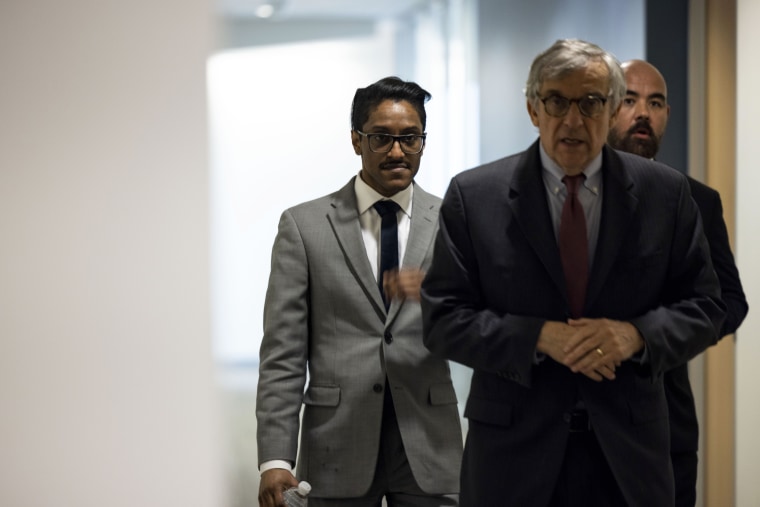Last Friday, The New York Times reported that Ali Alexander, “a key figure in the Stop the Steal movement,” has received a grand jury subpoena about his and others’ involvement in and planning for January 6. Perhaps more importantly, it noted that Alexander “agreed to cooperate with the Justice Department’s investigation of the attack on the Capitol.”
Yet while Alexander’s purported cooperation may be headline grabbing, it’s not clear that Alexander has done anything — yet — beyond receiving a federal grand jury subpoena and announcing that he intends to comply with that subpoena. There is no indication that the Justice Department has a cooperation agreement with Alexander; at most, he appears to be dangling his willingness to offer more than the subpoena demands. When prosecutors and defense lawyers refer to cooperation, on the other hand, they are usually referring to something wholly different. (Lawyers at one of New York’s best-known criminal defense firms describe the process of cooperating in a white collar criminal investigation here.)
Specifically, in the criminal context, a cooperator means someone more like Jan. 6 defendant and Proud Boy Charles Donohoe. Donohoe pled guilty last week to two counts stemming from his participation in January 6 and could face 20 years in prison just on one of those counts alone. Yet in addition to the penalties he faces, Donohoe also has a range of new and ongoing obligations to DOJ.
Under Donohoe’s plea agreement, he is now required to cooperate in any federal, state, or local investigation DOJ believes relevant. The scope of that cooperation is broad, ranging from providing sworn written statements, grand jury testimony, and trial testimony and agreeing to be interviewed by law enforcement and DOJ lawyers without his lawyer present, to handing over all evidence of crimes about which he is aware, agreeing to forfeit any proceeds or assets traceable to those crimes, and providing DOJ with a “full and complete accounting” of his financial assets.
That’s not exactly a good development for the other defendants charged in the same indictment, including Proud Boys leader Enrique Tarrio. But that’s also the point: Cooperation is a two-way street. The witness gives DOJ information; DOJ agrees to refrain from charging that witness with certain crimes and/or recommends more lenient treatment once a defendant pleads guilty and is awaiting sentencing.
For his part, Alexander told the Times, through a lawyer, that “he was taking a ‘cooperative posture’ with the Justice Department’s investigation but did not know what useful information he could give.” He also provided a statement to The Times in which he insists, “I did nothing wrong, and I am not in possession of evidence that anyone else had plans to commit unlawful acts.”
From where this recovering lawyer sits, a witness who publicly questions the utility of what he knows and denies responsibility for any wrongdoing is not a likely candidate for a cooperation agreement. But will Alexander ultimately offer federal prosecutors cooperation not just in the colloquial sense, but within the conventional legal framework too? Stay tuned.
P.S.: You might have noticed I now post here on the MaddowBlog occasionally, thanks to the always gracious, ever-brilliant Steve Benen. And you might be wondering: Who is she and what is she doing here?
Following a short stint on Capitol Hill, I went to law school, clerked on a federal court, and joined a BigLaw firm, expecting to spend two years there. Instead, I spent more than a decade as a litigator in private practice. And right before Trump made that infamous call to Zelenskyy, I joined TRMS as its first *off-air* legal analyst.
Broadly speaking, I advise Rachel and the team on our coverage of those stories at the intersection of legally significant and politically salient. Consider me not only a friendly translator of legal lingo and processes, but more importantly, an interpreter of what matters when law becomes news.
To date, I’ve written about those things I can’t stop obsessing about. But what I really want to do is address the legal issues that matter to you. Please drop me a note and share your questions about the legal news du jour at Rachel@msnbc.com with the subject line “Ask A (Recovering) Lawyer.” And as Rachel says, watch this space.

